Archana Masih
Mahmood Farooqui, historian and co-director of Peepli [Live]!, in a fascinating interview.
'A cousin gifted me a Mont Blanc pen on the day of the launch of my book, so I try and use it," grins Mahmood Farooqui, going inside his New Delhi home to fetch the pen before signing my copy of Besieged (Penguin), a fascinating account of what the residents of Delhi went through when the city lay under siege by the British for five harrowing months in the summer of 1857.
Fresh from the success of Peepli [Live]!, which he co-directed along with wife Anusha Rizvi, Farooqui is an interesting blend -- a Rhodes Scholar with degrees from Oxford, Cambridge and Delhi's St Stephen's and an alumnus of Doon School (the Gorakhpur boy won a scholarship to the famed public school); a researcher-historian who helped writer William Dalrymple in the research of the accomplished The Last Mughal and an artiste-crusader for the Urdu art of story-telling called Dastangoi.
'You can compare 1857 to the Quit India Movement, the Mandal agitation, the Babri Masjid'
Image: The cover of Besieged, Mahmood Farooqui's bookThe letters, writes Mahmood Farooqui in his introduction to the book, are a record of the daily life of a city under siege, of the travails of the ordinary life and the valiant attempt of the administration to both act as a welfare as well as a war state which is not available in any other period of Indian history.
In a fascinating conversation with Rediff.com's Archana Masih, Mahmood Farooqui speaks about the unsung, the ordinary, the unheroic of 1857 -- and why we should have a complicated relationship with our past.
There are vivid accounts of 1857 given by the British at that time but not from the Indian intellectuals who lived through it, why did it so happen?
The British came very heavily upon Indians. They did not allow it to happen, imposed a ban on its publication -- it was sedition. The intellectuals in Delhi realised that they could continue only if they compromised with the English.
Even (Veer) Savarkar's book (on 1857) came out in 1907 and was banned. It had to be smuggled in India. It was such a crushing defeat that many Indians wanted to forget it.
But even later on -- after Independence -- not much has been written by Indian writers about 1857 -- perhaps till its 150th anniversary.
1857 becomes a founding event of the national movement. The national movement is from 1857 to 1947 and there are more bigger and appealing people like Gandhi, Nehru, Ambedkar (to write about).
Moreover, 1857 is an instance of loss and defeat and that is how it has been looked at. I am seeing it as a kind of insurrection -- you can compare it to the Quit India Movement, the Mandal agitation, the Babri Masjid.
If you are looking at it as a social historian, you have to see how people rise up, risk their homes, lands and life...
'Indians had not been seduced by Western civilisation in 1857'
Image: The cover of The Last Mughal, which Mahmood Farooqui collaborated onWhy haven't we been curious to find out more about the heroes of 1857?
We don't see them much because they seem distant in history, they seem like medieval figures.
In part, 1857 is a struggle which is different from Bhagat Singh and the rest of the national movement. The national movement said that the British had colonised and ruled us but our leaders also agreed on the benefits of Western civilisation like education.
Compared to that in 1857 the English were seen as vile, and Indians had not been seduced by Western civilisation, they just wanted to get rid of them.
But after 1857, the English were seen as people who had some good things to offer as well. So there was a civilisational shift of attitude because of the shift in British policies that inculcated in the Indians the notion of British fairness, law and order, justice.
For the fighters of 1857 we would be angrez in brown skins.
Why do school history books lay more stress on the national movement in the early 20th century compared to periods before that?
It's not the fault of the education system. We have such a long history which has to be compressed and taught as part of the course. The whole history is of our nation State.
The question is how much history should we teach in our schools, how much is necessary, in what way etc.
An exercise has taken place in NCERT history textbooks which has chapters like the history of clothes, the history of food -- so there are attempts that are being made.
'The first fight for independence was a joint fight between Hindus and Muslims'
Image: A glimpse of one of the battles of 1857It held on because the soldiers fought very valiantly and the stupendous effort put on by the administration and people of Delhi. The book (Besieged) salutes the war effort in Delhi.
But you say in the book that the residents were initially not very happy with the soldiers who had taken over the city.
The city had an ambivalent relationship with the soldiers. Every city has an ambivalent relationship with soldiers -- if soldiers were present in half the city.
In 1857 Hindus and Muslims together fought the British. How do you see it in today's context when the relationship between Hindus and Muslims seems so strained at times?
Yes, the first fight for Independence was a joint fight. One feels sad about the developments that have taken place subsequently, but then there was Partition and the creation of Pakistan.
It also has something to do with the formation of the modern Hindu identity.
The modern Hindu identity in the 19th, early 20th century was formed on the understanding that Muslims came from outside, they were oppressors who converted us and forcibly took our land.
The Hindu Right keeps talking about the Hindu memory of persecution. The Hindu memory to a large extent is a construction in the 19th century where you say this is how our ancestors felt. They didn't necessarily feel that way, we do not have any evidence for that but that memory was enforced on the future.
Muslims also respond in kind after 1857 and of course the British encouraged all that, they were the ones who first wrote our first history.
The histories of India were history of conquests. They begin by saying India is a land always conquered by foreigners, all the foreigners who came before us were pathetic barring us... we are the best foreigners to conquer India -- so people imbibed that, after all what is taught in schools, people take that home.
'We must have a complicated relationship with our past'
Image: Celebrations at a Gandhi statue in BhopalPhotographs: Raj Patidar/Reuters
In the political terrain one party appropriates Gandhi and Nehru, another Savarkar, another Bose...
It is nice to have those debates and nice to have a politicisation of those debates because the debates are about people and politics is the arena where people must fight it out.
When issues are politicised, they will also be used by political parties. Then there is also a way of expressing genuine feeling -- you can say that Mayawati is manipulating the Dalits but through her Dalits are also reasserting themselves.
So one can't say it's good or bad because these are processes which must go on.
India's past is very contested terrain. If you ask a Dalit about it he will probably say what national movement? Where were we in that national movement?
If you ask a Gujjar, he'll say yes, a good national movement, but what has it given us?
We must have a complicated relationship with our past because we can't lock it up in a box. It is so vast with different understandings.
When you try and put all the past in your national history, these debates and struggles will happen.
Historians now have a consensus that nations are formed, national memories are formed, they are not out there, you construct them through books, histories, novels, print -- what Benedict Anderson calls print nationalism.
What do you think was Bahadur Shah Zafar's biggest contribution and his greatest failing?
His biggest contribution was that he tried to protect the citizens of Delhi.
In one way 1857 was a failing because everyone failed, they were defeated but it was also a success where they succeeded in getting rid of the East India Company.
Whatever Zafar's failings were the failings of his time. His biggest strength was he did his utmost to look after the people of Delhi.
'The aura of the Mughal emperor created by Akbar lasted for 300 years'
Image: The young Akbar, as played by Hrithik Roshan in Ashutosh Gowariker's film Jodhaa AkbarHe was seen as an emperor whose powers were restored to him.
The aura of the Mughal emperor created by Akbar lasted for 300 years. In the Rajput kingdoms, it was the Mughal emperor who decided who would be king.
As late as the 1820 and 1830s Rajputana principalities were writing to Bahadur Shah and before that to his father Akbar Shah asking them to chose them as the ruler and the British were trying to cut that and take over as the legitimate rulers.
At the same time there were soldiers who wanted a different kind of rule. They didn't want kings and queens, they wanted a soldiers council, committee etc.
There is always this debate whether 1857 was the First War of Independence, a religious war or a mutiny, or was it all three?
It was all of those things and we cannot write a single story.
The peasants of Haryana, Punjab and parts of Western UP were fighting for their land and a revenue settlement they didn't want.
In other parts they were fighting against the racism of the English. They were also united by the fact they were fighting against the British and the policies they had instituted.
We are very clear about what it is against, that's why I call it an uprising.
So it can't only be romanticised as the First War of Independence?
It can be, and has been. The whole national movement used it as an inspiration. The Gadar party in Punjab inspired Bhagat Singh.
What happened in history and what we make of it are different things.
'Ghalib was deeply wounded by the decimation of Delhi'
Image: Humayun's tomb in New Delhi, where Bahdaur Shah Zafar took refuge when Delhi fellPhotographs: Archana Masih/Rediff.com
Ghalib was an aristocratic man. He had travelled to Calcutta and admired the modernisation that the British had brought to the city.
He was a free spirited person who had a very high regard for himself. He believed that there was a class system in society and that the upper class was better.
When he saw these common soldiers who could not speak Urdu, had no respect for Urdu poetry, he reacted like any other upper class person would -- with disdain. He thought they were a calamity and that they were destroying the way of life.
He had a diary in which he wrote to the English about the black faced soldiers and wished that the angrez would come back. That is well documented.
Some people said he was a sycophant of the English, a traitor, but it is not that simple it is complicated.
The way Delhi was attacked and decimated by the British, left Ghalib deeply wounded and he was a completely transformed man. From 1857 he wrote only about the lament of Delhi.
He wrote only 11 ghazals in the 12 years after the mutiny. Such a famous shayar only writing one poem per year!
He lost his friends and in the end he was just waiting for his death. He had blisters over his body and couldn't write. It was brutally tragic what he went through after 1857.
A man with such a great regard for himself, his past, his country, his people saw it being razed. It was like taking a man and crushing him down to the ground.
You can imagine the sense of defeat, anguish, impotency, humiliation, pain and torture he went through.
'The British conquered India by Indian money'
Image: The Victoria Memorial in KolkataPhotographs: Jayanta Shaw/Reuters
It couldn't be. The British empire in 1857 extended from South America to North Africa to South Africa to India to China. The Opium wars were being fought (in China).
The British were the masters of the world, masters of the sea. Even if we were able to chase them up to Bengal, they would have been met by their ships in Bengal.
How can we say we could have defeated them?
Where all could we have removed them from? Surat? Bengal? Madras? The Karachi coast?
Was there any power in the world in 1857 up to 20th century which managed to resist the colonial impetus?
Countries were directly or indirectly colonised. The British were not going to leave all their profits and return when they had the whole sea and world at their command.
You think things would have been different had there been more powerful leadership during 1857?
There were very powerful leaders. There were some great warriors, tacticians, strategists.
It took the British three years after all to capture Tatya Tope. They couldn't capture many of the rebel leaders, many of whom went into Nepal -- Begum Hazrat Mahal, Maulvi Ahmadullah Shah.
Of course, leadership plays a role, but it is not always about leadership. Warfare is very complicated. A lot of wars are not fought on the battlefield, but off it.
You even bribe people to win wars. In the battle of Delhi in Patparganj in 1803, the British told all the British and European officers in the Maratha army that if they fought the war tomorrow they would be regarded as traitors and decimated.
The British did not conquer India by winning India through martial victory. They conquered India because Indian merchants/bankers preferred to support the British, they saw safety of money in them.
The British won wars from 1757 to 1857 for various reasons, but a very strong reason was the fact that the Indian moneyed class -- the traders, mahajans, merchants -- eventually decided to support the British consistently.
That's how India was conquered -- through Indian money.
'The Indian masses have always resisted, always fought'
Image: A statue of Mangal Pandey, one of the heroes of 1857, in Barrackpore, near KolkataPhotographs: Jayanta Shaw/Reuters
Yes, and another amazing aspect of that was during that time of fear, people still did not get silenced into submission.
The Indian masses, we might think, were totally powerless and impoverished, but they have always resisted, have always fought.
You have translated the letters from a translation from Shikastah (broken, cursive) -- and difficult -- Urdu, I want to ask you about the death of Urdu. Urdu doesn't seem much of a part of popular culture any more. Why?
I don't agree. Yes, there is a decline in Urdu from civil society but at the same time the oral culture of Urdu is very prestigious and thriving.
In the media or on FM (radio), whenever there is need to get lyrical, people use sher or shayari.
Even many film songs are like ghazals -- like Chand Sifarish... (Fanaa) and Behti Hawa Sa Tha Woh... (Three Idiots)...
In a sense, Urdu has reasserted itself in oral culture. A lot more Urdu words are being used in Hindi writing.
Since Hindi and Urdu are similar, even today there are many who speak Urdu-ised Hindi because there are words we have been familiar for 100 years like -- bewafa, sanam, aashiqui etc which are part of our lexicon because of Hindi films.
In South Asia up to Tamil Nadu if you ask someone to recite a poem, 80 per cent of Indians, Pakistanis, Bangladeshis will say a sher or a parody of a sher. The memory of Urdu -- in some form -- still remains.
Maharashtra, Karnataka, Bihar, have very strong and thriving Urdu areas. In North India -- Delhi, Haryana, UP, Rajasthan, MP -- where schools sidelined Urdu, the language got marginalised.

![Mahmood Farooqui, inset, co-directed Peepli [Live]! with his wife Anusha Rizvi](http://im.rediff.com/news/2010/sep/13slid11.jpg)
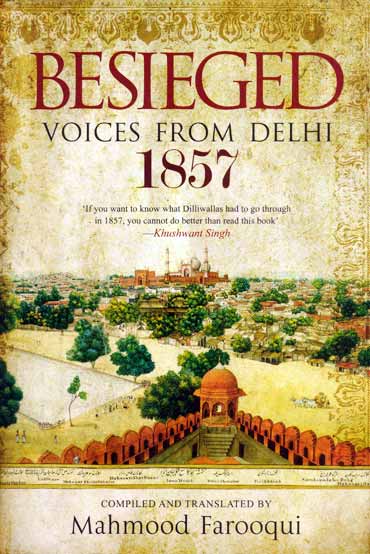
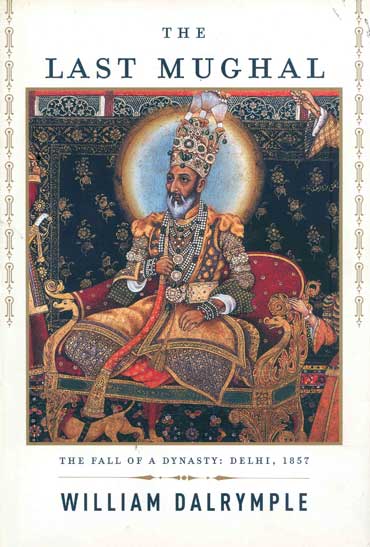
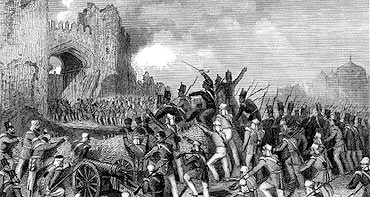
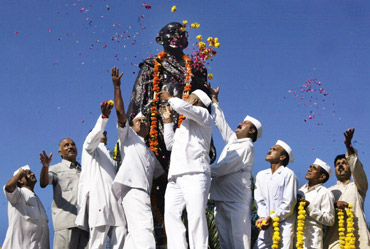
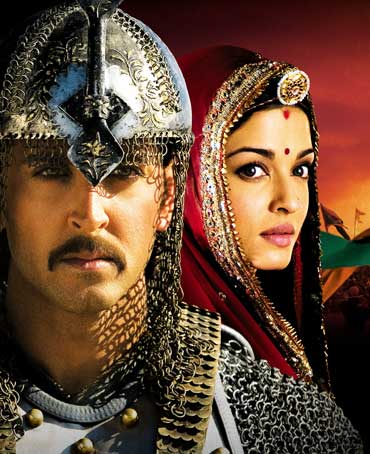
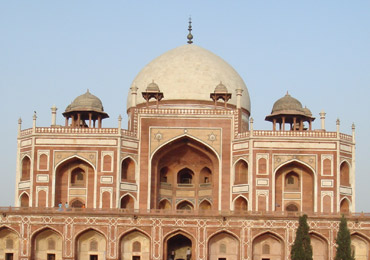
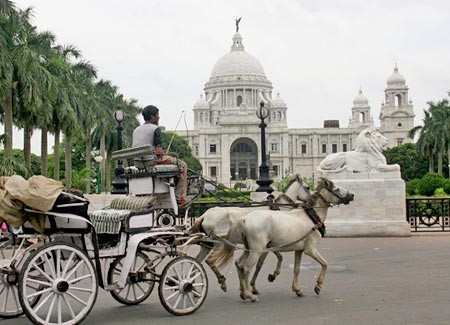
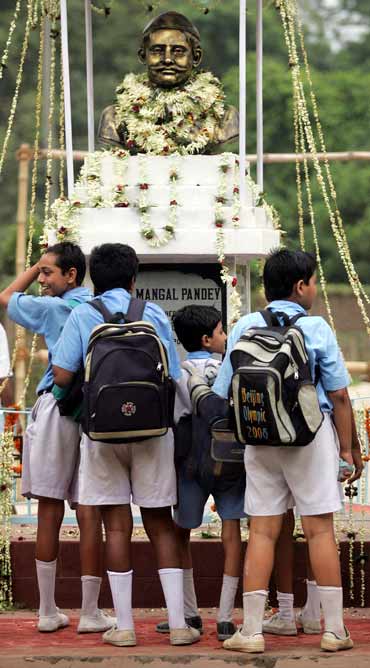
article